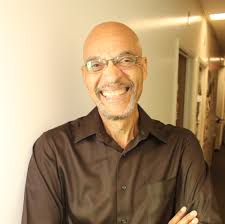GOP presidential candidates have been loose lipped on any and every public policy issue imaginable. But suddenly they have all have lost their speech on the Penn State scandal. They have uttered barely a peep about the scandal. The closest that any name GOP figure has come to speaking out on the scandal is fast faded, non-candidate Sarah Palin who lambasted accused and indicted sexual predator Jerry Sandusky.
The scandal is seemingly made in heaven for the GOP to score moral talking points on. It's chock full of their favorite themes on the perils of moral decay, and permissiveness, sexual deviancy, violence and the threat it poses to family and religious values. But as has so often been the case with the GOP when it's one of their own that's dumped on the legal and morals hot seat, mute silence quickly sets in. That's been true with the dozens of sexual abuse, rape, child molestation, and sex harassment cases that legions of GOP political notables and boosters have been implicated in or jailed for over the past two decades. In the case of Penn State there's an extra special reason for the GOP's deafening silence. The culprit on the hot seat is Joe Paterno, a GOP made man.
But Paterno's high place in the GOP celebrity pantheon goes much deeper than donating thousands to the party, his giving a seconding speech to George H W Bush at the 1988 GOP convention in New Orleans, his tout of W. Bush at a campaign rally at the York Expo Center in 2004, or even prepping his son Scott in his failed bid for a GOP congressional seat. Paterno's unabashed enthusiasm for the GOP rose above and beyond the normal bounds of political propriety. Hs 1988 convention speech gave the first real glimpse of Paterno as the consummate GOP pitch man. The speech was less than three minutes and was only one of seven seconding speeches for Bush. Yet it was the one that drew headlines not because he gave it, but because in the words of reporters at the convention, he "ripped" the Democrats.
Bush campaign officials fell all over themselves gushing over Paterno's speech. They excitedly called it "a great thing for us" and "a great thing for George Bush." A handful of Pennsylvania Democratic state officials including then Pennsylvania Governor Bob Casey screamed that Paterno was using his prestige and position at a state supported institution to spew partisan politics, and that it could even jeopardize state funding for a public university and have an adverse impact on the ability to raise private contributions. They accused him of trading on his name to blatantly boost the GOP. A defiant and unapologetic Paterno shrugged it off as much ado about nothing and said he would say what he pleased about a "guy I like very much." Paterno had spoken, but the case wasn't closed. Paterno couldn't resist reminding the critics and the public that his tout of the GOP was "an honor" for the university and Pennsylvania.
Paterno didn't stop there. He rushed to New Hampshire to campaign door to door for Bush and along the way endorsed a local Republican congressional candidate. In the next two decades Paterno kept a close eye on local and national GOP politics. GOP officials though ever protective of Paterno gave the stock answer that Paterno was not directly involved in party policy issues and decisions but rather was simply a celebrity endorser. But Paterno didn't have to be involved in party politics or operations to have an impact. His name as a celebrity and sports icon was gold with an admiring public and that added priceless sheen and luster to the GOP locally and nationally.
Paterno certainly had a right to follow his convictions and endorse, campaign for, and bankroll GOP candidates. But his political right to be a GOP preppie was never the issue. The issue was the party that he went to the barricades for time and again. A party that has been the poster party for the past four decades of scandal, cronyism, corruption and most damaging of all, a party with a marked propensity to keep silent on racial and gender racist gaffes, digs, slander and abuse by GOP officials and notables. It's been especially adept at the art of silence and the cover-up on scandals that embroil its own.
Paterno's self admitted failure to "do more" as he put it to stop the abuse when his name, reputation, and the sports program that he put nearly five decades into turning into his personal fiefdom was in mortal danger of crashing down around him was a page straight out of the playbook the GOP on cover-up that it has so deftly turned into a studied art over the years. It is no accident then that the GOP presidential candidates could lose their tongue when one of their own is again on the moral firing line.
Earl Ofari Hutchinson is an author and political analyst. He is a weekly co-host of the Al Sharpton Show on American Urban Radio Network. He is the author of How Obama Governed: The Year of Crisis and Challenge. He is an associate editor of New America Media. He is host of the weekly Hutchinson Report Newsmaker Hour on KTYM Radio Los Angeles streamed on ktym.com podcast on blogtalkradio.com and on thehutchinsonreportnews.com
Follow Earl Ofari Hutchinson on Twitter: http://twitter.com/earlhutchinson




